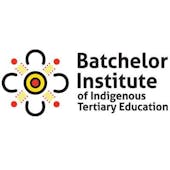
Batchelor Institute of Indigenous Tertiary Education

Batchelor Institute began in the late 1960s as a small annexe of Kormilda College, providing programs for Aboriginal teacher aides and assistants in community schools. In 1974 Batchelor Institute moved to the Batchelor township. In 1982 the Institute commenced as a dual sector tertiary provider and since the 1980s has continuously built a focus on learning that is supportive of Aboriginal and Torres Strait Islander cultures. A second campus was established in 1990 in Alice Springs. Between 1988 and 1999 the Institute was known as Batchelor College. In 1999 the current Batchelor Institute was established with an emphasis on Indigenous Australian ownership and governance of the Batchelor Institute Council. Since the Australian government higher education reforms of 2003 Batchelor Institute has been recognised and funded as a ‘National Institute’.
In 2008 the Desert Peoples Centre (DPC) was established in Alice Springs in partnership with the Centre for Appropriate Technology (CAT) as a mechanism to provide contemporary learning, skills and pathways appropriate to desert communities.
Batchelor Institute continues to operate as a dual sector higher education provider with campuses in Batchelor and Alice Springs, including four regional annexes, seven community based purpose built study centres and approximately three community based learning centres situated throughout the Northern Territory.
The Institute offers a range of courses aligned to employment opportunities in remote communities – from preparatory courses to VET certificates and diploma level courses, to higher education degrees, to postgraduate course work and research programs across three academic faculties and divisions.
Links
Displaying all articles





